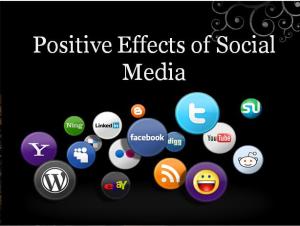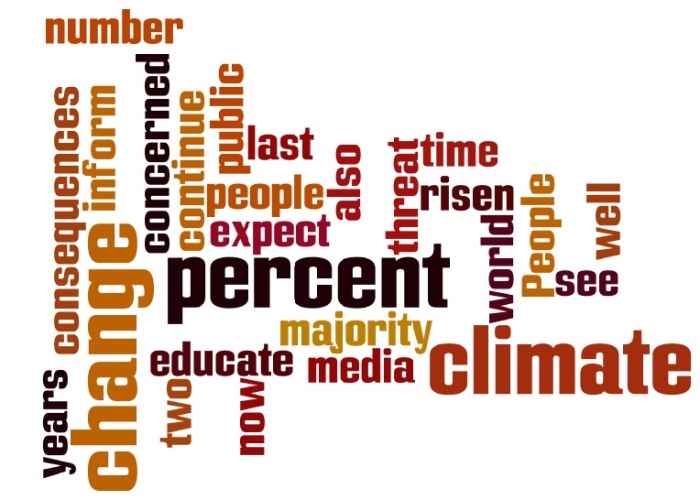Growing up in a small trading-town of Keta in the Volta Region, my grand-mother; Madam Doris Degadjor-Deha; a Cereal/Grains Seller in the Keta Market paid so much attention to Education as the only key to eradicating poverty in our family.

Mac-Jordan @ #TEDxYI
Back in the day, she always makes me write letters to my father by normal dictation of whatever she wants to say and I also try as much as possible to express them on the foolscap sheet from my notebooks…! This was the only mean of communicating between my father and Uncles who were in Accra.
I saw those habits as a means of bridging the communication-gap between myself, my dad, Uncles and my grandmother. Those days of letter writing have really helped in shaping my writing skills till date. I owe my grandmother every bit of my success story. She’s the reason why I’m on this podium sharing my life experiences with you all.
In secondary school; Keta Secondary School. I was a member of the Writer’s & Debaters Club in my first and I later on became the Editor-In-Chief of the School’s Magazine [The Dzolalian] which was released in time for the 50th Anniversary Celebration.
To some extent, I do believe it’s hard to know sometimes how our life has changed until we stop for a moment and look at how different it is from 10 or even 5 years ago.
In recent year’s social media, likely more than anything else has significantly impacted most of my daily lives. The very first thing I look out for when I open my eyes each morning is my Nokia E71 Mobile Phone…! With this tool, I’m able to communicate, know of the latest trending topics/news and update my followers/friends about happenings around me.

Positive Effects of Social Media
Envisioning the global conversation that has developed over the past few years because of tools like Hi5, MySpace, YouTube, Facebook and Twitter might have been unimaginable for most people at the beginning of this decade. But social media communication tools have profoundly changed my life and how I interact with other people in the world.
Below are the various ways Social Media has revolutionized MY LIFE.
1. Citizen Journalism / Blogging
My friends on social media are increasingly becoming my trusted sources of information, even more than search engines. My Nigerian blogger friend now resident in Ghana, Oluniyi David Ajao recently commented,
“More people are finding my blog from Twitter and Facebook referrals than via Google.com.”
Interestingly, this should tell you how deep people are going with Social Media these days. News (news) is more social than ever. By getting our news from social media, we know who is recommending and can easily communicate with that person about it.
2. NETWORKING / MEET-UPS
Recently, staying up-to-date with family and friends has been very easy with the coming in of Social Media tools. From writing letters which were either sent by post or hand delivered to today’s modern way of email/SMS has really proven that, Social Media has more positive effects than the negative.
The organizing crew and members of Barcamp-Ghana, Ghana Blogging Group, Maker Faire Africa, Accra Twestival and TEDxYouthInspire all came about as a result of networking via social media tools. By constant staying in touch with each other and working on projects, we know who is available to support any event/project that will be happening and who can play “X-Y-Z” role.
Of course, there isn’t only so much communication that can happen through a social network, but via Tweet-ups and other in-person events, people are expanding these online interactions to face-to-face meetings just like I met RodneyQuarcoo for the very first time even though we’ve been communicating for quite sometimes now.By the way, Rodney Quarcoo was the official photographer at the #TEDxYouthInspire event.
The introductions are initially made through social networks, and then people develop the relationship using phone calls and in-person meetings. In other words, social media is increasingly being used to find and maintain both old and potentially new friendships. There’s been so many instances where friends from Secondary School or University who’ve not been in touch after graduating get to reconnect again via Facebook or Twitter.
3. START-UPS / ENTREPRENEURSHIP
It is easier than ever to start and launch a business today, in great part thanks to social media. We can’t only locate potential collaborators and employees through interest-focused Google Groups, Facebook groups, Twitter searches, and other social networks, but perhaps more importantly, social media gives people who have time, but little money for advertising, the chance to engage with others and promote their business.
While business in the past was generally conducted with those in one’s immediate environment, social media tools, including everything from blogging-tweeting-posting videos on YouTube, has opened new possibilities for both customers and clients. Who we do business with and how we promote that business has moved increasingly online, and for small business especially, social media has proved valuable.

Start-ups using Social Media for advertisement in Ghana.
Start-ups like Meltwater Group, Internet Research, Twists & Locs, DreamOval, Suuch Solutions and some Ghanaian Musicians are a few that are really using Social Media to sell their products and name. A Google search on any of these businesses/Groups/Persons would definitely reveal more information about them today than a couple of years back.
4. SOCIAL ACTIVISM
The practice of using digital technology /social media tools for entertainment, reporting, education, travel and social change is how I define my zeal for activism. Last year, I was part of a few selected bloggers from Africa that participated in the United Nation’s Climate Change Conference in Copenhagen, Denmark. Before my departure, I really experienced the positive side of Social Media from Visa acquisition, accommodation and air-fare package.
Managing Director of GlobalVoicesOnline, Georgia Popplewell visited Ghana sometimes in October 2009 for the African Media Leadership Conference. I happened to take her for a guided tour around some parts of Accra and Cape Coast. She actually convinced me into writing for #GVO from Ghana which I accepted without any comment after hearing of the benefits/opportunities that come with GVO. In my preparation for the Climate Change Conference in Copenhagen; I was approved of a stipend

Chip-In Campaign by Georgia Popplewell
which will help me in my participation in the conference and my successful return to my home-country, Ghana. When the stipend was successfully approved, Georgia played a very important role by starting a “CHIP-IN campaign” on twitter which saw people from different parts of the world contributing.
The following 45 Activists supported my going to Copenhagen to report on Climate Change issues been discussed for Global Voices Online & Ghana Blogging Group; and also add my voice to the climate petition been demanded from world leaders. I want to use the medium to say a big “THANK YOU” to all 45 social media activists who saw the importance of my going to Copenhagen and contributed.
Whiles in Copenhagen, I didn’t only focus on reporting and blogging but rather, I took the opportunity to meet other people, exchange contacts and more… I met dignitaries, Heads of States and celebrities from all over the world. Amongst them are; (Please click on the links for the photos)
The Mayor of British Columbia, Vancouver – Gregor Robertson
Archbishop Emeritus of Cape Town – The Most Reverend Desmond Tutu.
Pro-Photographer – Kris Krug and the Fresh Air Center Crew.
Daryl Hannah – Movie Star from the movies; “Kill Bill 1 & 2” and “Splash”.
Kumi Naidoo – CEO of Greenpeace International
Currently, I voluntarily reports on the activity of the Ghanaian blogosphere; summarizing on the concerns of bloggers in Ghana. I’m also a key member of Ghana Blogging Group and Future Challenges by the Bertelsmann Foundation in Germany.
5. Conclusion
Before I conclude, the print and electronic media somehow have made a huge impact in positively affecting the lives of people for sometimes now. It is not really a big deal but to some extent it is; because most people read news items and follows stories from MyJoyonline, Peacefmonline, GhanaWeb and other media outlets but with the coming of social media tools; power is increasingly more widespread. So-called mainstream media is no longer always the driving influencer of public opinion.
Bill Gates signed up on Twitter recently and you would be amazed at the number of followers he received within an hour. About 100.000 people started following including myself. On Twitter, some individuals now have a million or more followers, Facebook Pages of Movies Stars, Musicians and key influential people also have hundreds of thousands of fans, and YouTube videos get millions of views when they go viral. Most of this content is coming from regular people, rather than big, corporate-owned media organizations.
For example, people like Esi Cleland, Ato-Ulzen Appiah, William Kamkwamba, Ameyaw Debrah and few others who have over 1000 friends/followers on Facebook and Twitter, have used social media to increase their influence beyond what was possible for “regular people” in the past couple of years…
At this juncture, I know some of you sited here won’t agree with me but in every era;
“cultures go through numerous changes, and in recent years ours has been more impacted than anything else by social media.”
Large media houses in Ghana are not likely to go away overnight, nor will the need to communicate by phone or meet people in person, but social media is providing yet one more means of engaging with people on this vast planet of ours, and if used effectively can give all of us greater choice in how we live and what happens in our world.
I’m experiencing the positive effects of social media since I signed up a couple of years ago. I’m calling on all you sited here this evening to take a bold step and make it point to transform people’s lives with social media.
Thank you….! 🙂










![Reblog this post [with Zemanta]](https://i0.wp.com/img.zemanta.com/reblog_c.png)